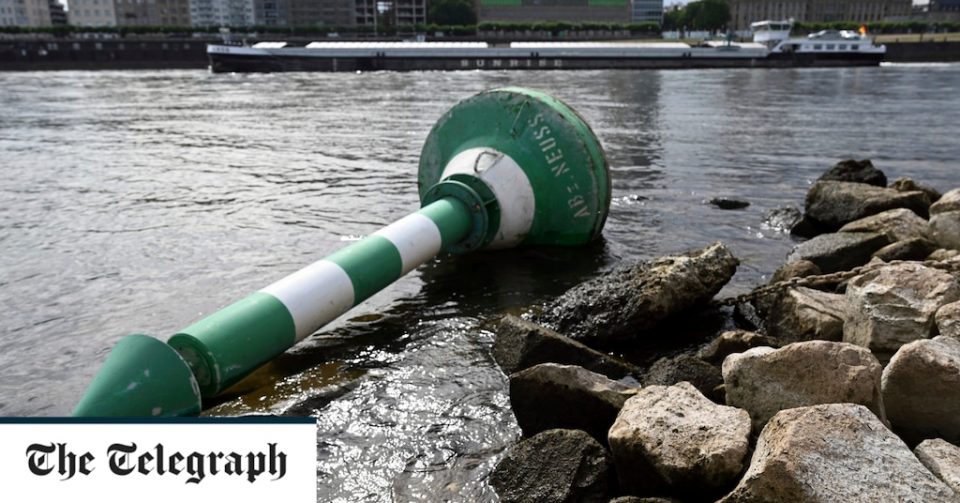Germany already experienced intense heat during June, with records broken at hundreds of monitoring stations.
The country’s National Meteorological Service has warned the heatwave will be especially intense in the south-west, with experts predicting highs of more than 40C next week in central and south Germany.
Warnings over the state of the Rhine came early this year, with water levels at Kaub previously falling below one metre in March following a dry winter – the first time they had done so since at least 2000, the earliest year for which data is available.
The full effects of a heatwave now may not be fully felt until autumn. After the summer heatwave in 2018 – which killed thousands of Rhine fish in Switzerland – water levels in Kaub went on to drop as low as 25cm in October.
That record low led chemicals producer Covestro to issue a profit warning amid soaring logistics costs, and forced BASF to close a facility. Officials in Berlin used its strategic oil reserves to try and cover the decline in shipments.
Other rivers are also being affected by the high temperatures. The Po – Italy’s longest river – has dried up amid the most severe drought in 70 years.


